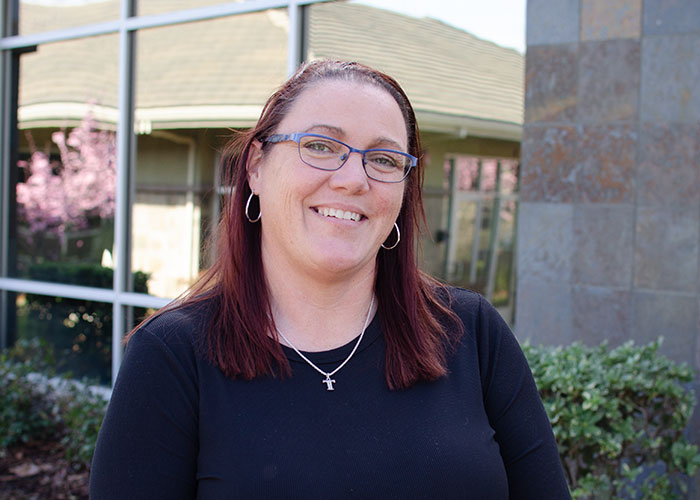Improving Communication with Loved Ones with Alzheimer’s Disease

Caring for a loved one with dementia or Alzheimer’s disease can be challenging. Sometimes they are alert and oriented, and other times they are confused and irritable. And some days they may be somewhere in between. But they are family, and you love them in good times and bad.
Alzheimer’s can make communicating more difficult depending on your aging parent’s current state of mind. It can be frustrating when they don’t want to do what you ask, have trouble following directions or answering questions, or start talking about something that happened a long time ago, or never happened at all.
Being calm, patient, and empathetic is essential. When talking to a loved one with Alzheimer’s, here are a few considerations to keep in mind:
Give them time to answer. When you ask a question, make sure it is simple and straightforward, then give your loved one some time to think about their answer and formulate a response. Rushing them can make them feel more flustered and confused. You may be able to provide some guidance by asking a follow-up question or restating what you think they said to help them clarify their thoughts.
Ask yes or no questions. Sometimes it is easier to ask a question that can be answered with a simple yes or no. Or, offer them two options and ask which one they prefer. For example, “Would you like chicken or pizza for dinner?” rather than, “What would you like for dinner?” Open-ended questions can be more confusing because there are so many options.
Maintain eye contact. Look at your loved one when you are speaking to them so you know you have their attention. Speak slowly and clearly so they can understand what you are saying. You can use visual cues or tangible objects as reminders as well. Try to limit other distractions so they are focused on you and not on listening to noise from the television or watching someone out the window.
Write things down. If it is important, write it down. This allows your loved one to go back and read things later in case they forget. You may want to put a note on the refrigerator or microwave reminding them of how to heat something up. A note by the television about how to use the remote and find their favorite show. A note near their computer or phone about when you will be calling, or how to get in touch with you. A stop sign on the door reminding them not to go outside.
Talk when they are most alert. Seniors with Alzheimer’s often cycle through periods of alertness and confusion. Try to have conversations with your loved one when they are present, aware, and engaged. If they start to become frustrated or irritated, take a break and try again later. Talking to them in this state can make you and them more stressed out.
Alzheimer’s is a progressive disease, so you may have to alter your approach as it continues and find what works best for communicating with your loved one. If your aging parent lives independently, enlisting the help and support of an in-home care provider that is trained in working with individuals with Alzheimer’s disease can be beneficial. You can rest easier knowing they are receiving the level of care they need. Learn more about in-home care from Always Best Care by calling (855) 470-2273 today to schedule a free consultation.


![10 Senior Living Technologies You Should Know About [+ FAQs]](https://alwaysbestcare.com/wp-content/uploads/2025/06/senior-living-technology-hero-image.jpg)


